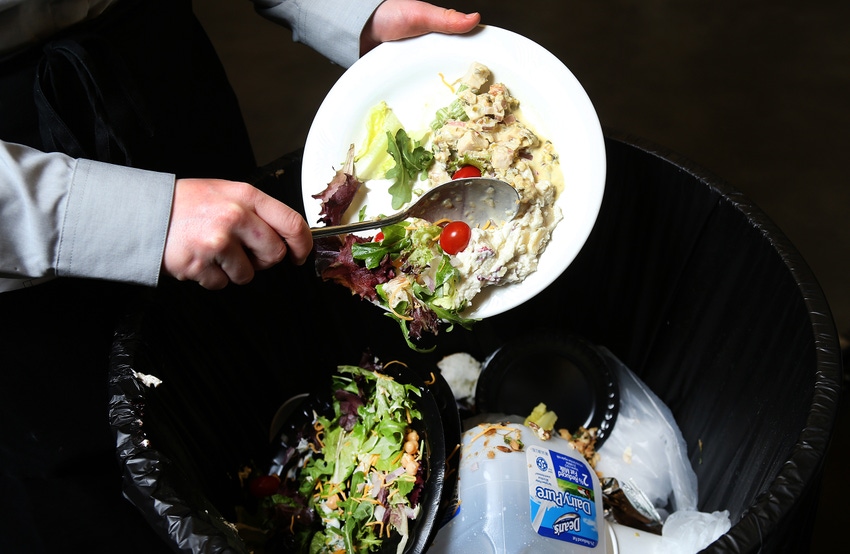What Cities and States Can Do to Tackle Food Waste
A sneak peek at WasteExpo session “Advances in Wasted Food Policy, Practices, and Management: Highlighting What Cities and States can do Differently When It Comes to Wasted Food.”

Cities and states are uniquely positioned to take on the challenges of dealing with food waste and are increasingly motivated to do so. They are charged with reducing massive volumes of material going to landfill; many are working to meet demanding diversion targets.
Governments grapple with issues tied to funding and logistics to accomplish these tasks. While some are stepping up to fulfill obligations imposed on them and some are doing even more than required, they struggle with a mounting food waste problem.
The Natural Resource Defense Council (NRDC) is helping municipalities make strides, specifically in food waste prevention, surplus food rescue and food scrap recycling. Building on a pilot in Nashville, Tenn., the nonprofit is partnering with two cities through an initiative called Food Matters. NRDC hopes to lay a foundation for other cities to build successful programs and help their states cut food waste.
Darby Hoover, senior resource specialist at NRDC, will share what transpires from this work at WasteExpo 2019 in Las Vegas during a session titled “Advances in Wasted Food Policy, Practices, and Management: Highlighting What Cities and States can do Differently When It Comes to Wasted Food,” held Monday, May 6 from 10:45 a.m. to 12:15 p.m. PT.
Presenting with Hoover will be Cheryl Coleman of the U.S. Environmental Protection Agency; Kai Robertson, Food Loss & Waste Protocol, World Resources Institute; and Yalmaz Siddiqui, MGM Resorts & Member, Nevada’s Sustainability Alliance.
“We are finding there are common trends around where food waste is happening and what strategies might be useful. But there are variations on specifics as far as what’s in place and where the best opportunities are. We have to consider cities’ individual needs, goals and resources,” says Hoover.
NRDC’s goal is to help customize approaches for specific locations while also identifying and addressing common themes and directing individual municipalities to strategies that will work for many of them.
“We want to tackle the whole spectrum of strategies to address wasted food, including prevention of waste, rescue and recycling. And we want to help cities incorporate policies, programs and partnerships to do that,” says Hoover.
For now, NRDC is working with Denver and Baltimore to assess existing resources and identify opportunities to add infrastructure for rescue and scrap recycling, and it will help develop strategies to educate consumers and businesses on preventing food waste. In mid-February, the nonprofit will convene other municipalities to share their strategies and practices and talk through questions and solutions.
“Our plan is to work on the ground with these jurisdictions through the next year, and then hopefully show meaningful policy and program adoption as well have templates in place to guide municipalities in replicating models across the U.S.,” says Hoover.
Food waste is a problem that comes with a $218 billion price tag and generates 63 million tons of garbage across the supply chain.
In working to cut those numbers, governments can help businesses and residents reduce food waste, which can help feed their citizens who are food insecure. They can create green jobs and achieve climate goals in their communities, says Chris Cochran, executive director of Rethink Food Waste Through Economics and Data (ReFED), who will moderate the WasteExpo session.
ReFED developed a tool that lists policies around prevention, recovery and recycling that states and municipalities are pursuing or could pursue. This resource also lists best-in-class and worst-in-class policies of jurisdictions across the country.
“Massachusetts is a great example of a success story. Its plan includes a ban requiring large businesses to recycle food waste that creates market demand and has produced $175 million in economic value and 900 jobs,” says Cochran.
But Massachusetts’ approach isn’t working solely because of a ban, he says.
“It’s also successful because of a state grant program to help build out recycling infrastructure and because the state provides technical assistance to businesses to help set up for success,” says Cochran.
Similar programs exist in five states and five cities. And another initiative is unfolding in California, which is currently writing regulations for SB 1383. SB 1383 will require jurisdictions to get to 50 percent diversion by 2020 and 75 percent by 2025.
“The California bill will be one of several topics we will talk about at WasteExpo. It has significant implications for the state in helping achieve its food waste reduction goals,” says Cochran.
About the Author(s)
You May Also Like




